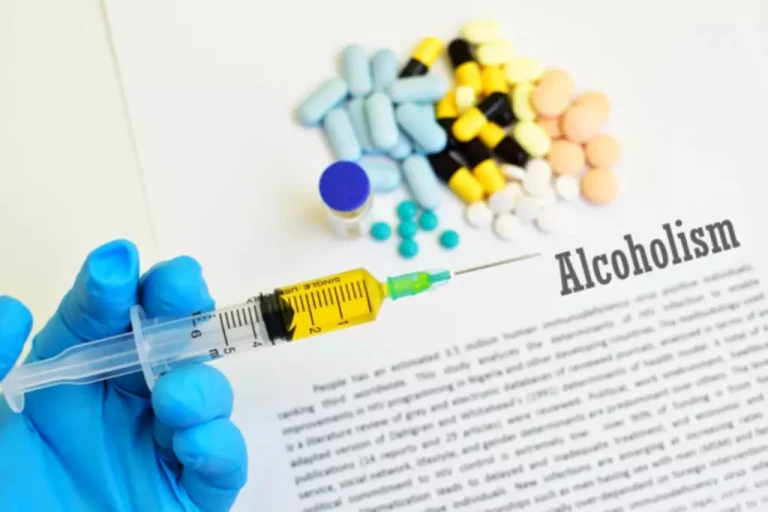CBD Addiction: Is Cannabidiol CBD Addictive?

Thirty to 60 mg CBD weakened or blocked time production impairment, psychological disturbances, and pulse rate acceleration produced by THC, when co-administered. CBD also decreased anxiety following THC, with subjects reporting more pleasurable effects. In 2017, Garberg et al. administered 50 mg/kg IV CBD to four piglets to evaluate drug safety and potential neuroprotective effects. CBD significantly reduced brain-derived https://ecosoberhouse.com/ neurotrophic factor (BDNF) expression and other signaling proteins in the hippocampus and frontal cortex with no effect in the striatum. It was concluded that CBD did not provide neuroprotection during early global hypoxia-ischemia [63]. Currently, CBD is the focus of mass marketing campaigns and the subject of anecdotal reports claiming that CBD provides the answer for multiple illnesses from chronic pain to depression.
Natural pain relief and anti-inflammatory properties

It may also soothe the symptoms of certain skin conditions, like eczema and psoriasis. CBD is not an intoxicating substance, whereas THC is a psychoactive that can get you high. Stomach upset or other gastrointestinal problems are another common side effect of CBD and CBD-derived products. Always speak with a healthcare provider before taking a supplement to ensure that the supplement and dosage are appropriate for your individual needs. Do not drive or use heavy machinery when taking CBD oil—especially when you first start using it or switch to a new brand. CBD may produce favorable outcomes for people attempting to lower their blood pressure.
Cannabidiol: What is CBD, how does it work, and what are the risks?

It’s also important to note that other factors besides biological mechanisms, such as a person’s social environment, are also critical in a person’s risk for drug use and addiction. Read more about marijuana as a gateway drug in our Marijuana Research Report. More research is needed to know if secondhand marijuana smoke has similar health risks as secondhand tobacco smoke. A is cannabidiol addictive recent study on rats suggests that secondhand marijuana smoke can do as much damage to the heart and blood vessels as secondhand tobacco smoke.20But researchers haven’t fully explored the effect of secondhand marijuana smoke on humans. What they do know is that the toxins and tar found in marijuana smoke could affect vulnerable people, such as children or people with asthma.
- Although it can give you dry eyes and mouth, it’s one of the better strains for vegging out on the couch.
- The latter data supports the addictive model of cannabis as insula activation may serve as a biomarker to help predict relapse (Filbey et al. 2016).
- Drug Enforcement Administration (DEA) removed Epidiolex® from the most restricted Schedule 1 (no approved medical use and high abuse liability) to Schedule V with low abuse potential [56].
- Preliminary evidence suggests that CBD may help treat substance use disorder.
Supports Brain and Nerve Conditions
“Here we have [cannabinoid] drugs that work on multiple receptors and have multiple effects. What’s more, some cannabinoids can also act on non-cannabinoid receptors, such as opioid receptors. Part of the issue is cannabinoid receptors are on cells all through our body, and they can do different things in different places at different doses. Regarding METH, CBD (40 and 80 mg/kg; IP) suppressed METH-induced CPP in a dose-dependent manner (Yang et al., 2020). Meanwhile, ICV infusion of CBD inhibited both acquisition (10 and 50 μg/5 μL) and expression (50 μg/5 μL) phases (Anooshe et al., 2021); while, it enhanced sensitization (10 μg/5 μL) of METH-induced CPP in rats (Khanegheini et al., 2021).
What is CBD
These compounds are essential to maintaining internal balance through many different body systems. CBD has grown in popularity since the Farm Bill and federal legalization in 2018, especially within the world of health and wellness. There are many questions asked about the potential risks and benefits of CBD for public health-related problems, and ongoing misconceptions regarding whether it’s safe to use daily or possibly even addictive. In the US and other territories there are, however, numerous veterinary nutraceutical products available over the counter (OTC). The lack of clarity in the regulations governing veterinary hemp food supplements allows for products of questionable quality to flood the market,[166][167] which may pose a risk to the wellbeing of pets and owners. Given these unknowns, as well as cannabidiol’s ability to slow your liver’s ability to metabolise other drugs, anyone considering taking CBD should speak to a medical professional first, no matter the claims you see pushed by influencers.
This CBD restorative effect on hippocampal substructures suggests a therapeutic potential for other pathologies such as schizophrenia, Alzheimer’s disease, and major depressive disorder [40]. Indeed, in human studies for schizophrenia [35, 38] and Parkinson’s disease [43], and in animal studies for symptoms of Alzheimer’s disease [44], CBD was shown to be an effective treatment. The World Health Organization considers rescheduling can-nabis and cannabinoids. CBD use around the world is expanding for diseases that lack scientific evidence of the drug’s effi-cacy. Preclinical and clinical studies also report adverse effects (AEs) and toxicity following CBD intake. CBD can have various health benefits, from pain management to helping with cancer symptoms; CBD is utilized in many different forms and settings.

Research suggests it is reasonably safe and is well tolerated at doses up to 1,500 mg with little to no negative consequences or risk of substance abuse. Cannabinoids interact with our ECS to help maintain functional balance through a system of messenger molecules and receptors. Sleep, energy, cardiovascular function, reproduction, stress, chronic pain, motivation, appetite, digestion, and more are some bodily functions that cannabinoids impact. Several preclinical researches studies were assigned to evaluate the effect of CBD on the reinstatement of cocaine-seeking in the SA paradigm. It was reported that CBD (10 mg/kg) potentiated stress-induced reinstatement of cocaine-seeking behavior (Luján et al., 2021) while cocaine-induced reconsolidation and priming-induced reinstatement remained unchanged following CBD treatment in mice (Luján et al., 2018). In contrast, Luján et al., 2020 indicated that CBD treatment suppressed cue-induced reinstatement of cocaine-seeking in mice (Luján et al., 2021) (Table. 1).
‘Zero justice’: Grieving families question legal system as Daylesford pub crash driver walks free
- Additionally, children and adolescents should use caution when considering CBD due to the potential impact on brain development.
- The small number of studies in each category and their heterogeneity makes the comparison difficult, if not impossible.
- Interestingly, a single acute administration of a low 3 mg/kg CBD dose in mice had an anxiolytic effect, while repeated administration of a 3 or 10 mg/kg dose exerted antidepressant effects by cell proliferation and neurogenesis [36].
- Your body can absorb inhaled compounds directly from your lungs into your bloodstream.
- Hemp oil is processed differently (pressing hemp seeds) and typically contains no CBD.
- While CBD does not have psychoactive properties, it does have a variety of effects.


